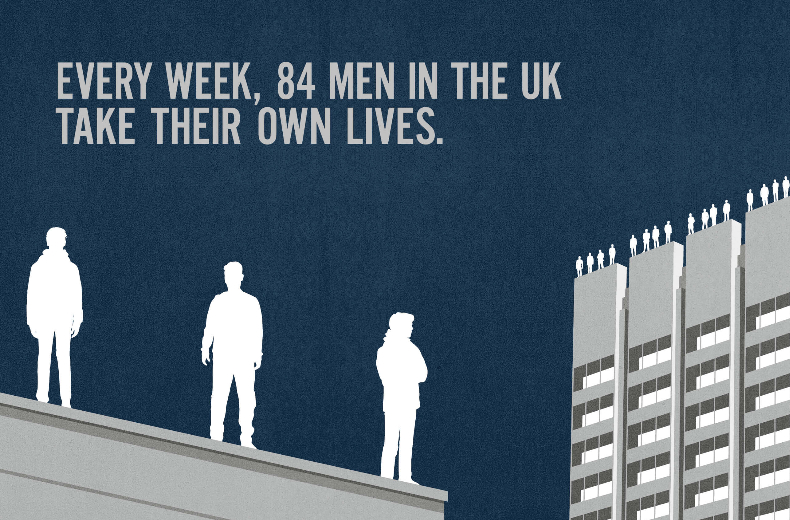
How can brands use music to overcome generational tensions?
Joanna Barnett, Strategy Director at Truant, on the power of music to bring people closer together and broaden a brand’s appeal.
Mental health is not just an issue for social media companies. Anyone who brings images and messages to our screens should be thinking about these silent illnesses.


I was 17 when mobile phones became ubiquitous. My first one was a Motorola with a wheel on the side to scroll through messages. There was no Angry Birds, apps and definitely no social media. I feel lucky to have escaped with childhood memories that live in a box in the attic, not online for anyone seemingly to have a look at.
The effect that our online lives has on our mental health has been well documented. Unsurprisingly, studies have linked prolonged social media use with symptoms of depression, anxiety and low self-esteem. Yet there are others that suggest social media can deliver significant benefits too, helping those in need to build online communities that will provide emotional support.
As we continue to freely share our thoughts, feelings and images on public platforms, what responsibility do these companies have to act on all this information? Facebook may be selling our data to Cambridge Analytica with one hand, yet with the other it’s created a Compassion Department, where professional first responders work alongside AI to monitor users’ mental wellbeing. They’ve even reported to have prevented suicides.
Mental health is not just an issue for social media companies. Anyone who brings images and messages to our screens should be thinking about these silent illnesses. Approximately 1 in 4 people in the UK will experience a mental health problem each year according to the charity Mind’s website. In England, 1 in 6 people report experiencing a common mental health problem (such as anxiety and depression) in any given week.
The Heads Together campaign, spearheaded by the Royal Foundation, has done a huge amount to bring this invisible issue into the limelight. But brands and institutions could definitely do more to help us feel happy living imperfect lives.
People with mental illness are an extreme version of all of us. Just think, if we design for people with a mental illness, we are designing for the mental wellness of all of us.

Project 84 is adam&eveDDB’s second campaign for The Campaign Against Living Miserably (CALM), a charity dedicated to preventing male suicide.
Eighty four sculptures created by renowned artist Mark Jenkins were installed on top of London’s Southbank buildings on Monday 26th March and will remain there for seven days. They are a visual representation and poignant reminder of the tragic statistic that 84 men take their own lives every week.
Supporting the project, ITV’s This Morning raised awareness of the campaign with three days of programming dedicated to male suicide, including interviews with the friends and family of the men at the heart of Project 84.
The work aims to initiate a much-needed conversation and action around male suicide prevention and bereavement support.
The project was made possible by male grooming brand Harry’s. Harry’s ambition is to help guys navigate what it means to be a man today. Much like female beauty images, male grooming is often not reflective of real-life. By supporting initiatives such as Project 84, Harry’s hope to have a positive impact on the lives of all men.


In response to a Channel 4 competition that awarded free air time to the brand with the best creative concept that featured a non-visible disability, Lloyds Bank with adam&eveDDB pitched ‘Get the Inside Out’. The TV ad featured celebrities, bank employees and members of the public playing ‘Who am I?’ the sticky-note guessing game, to talk about mental health conditions such as anxiety, bipolar disorder and depression.


Being a best man is often a shining example of what it means to be a great mate from planning the stag do to being there for the groom on the day. But why save it for a wedding? The #BestManProject encourages friends to be a best man every day. CALM has been collecting, sharing and inspiring the collective wit and wisdom of best mates all over the country, including the Duke of Cambridge.
Instagram co-founder and CEO Kevin Systrom wrote in a blog post: “Every day on Instagram, we see people share their mental health journeys and connect with communities of support. From dedicated accounts around an issue to unique hashtags adopted by groups, these communities are helping to make illnesses that are often invisible to friends and family visible through photos and videos.” This insight into the number of people turning to social media in search of mental health support inspired Instagram to launch its #HereForYou campaign last May. The one-minute campaign video features three Instagram users talking about their past struggles with eating disorders, depression and suicidal thoughts.

Looks like you need to create a Creativebrief account to perform this action.
Create account Sign inLooks like you need to create a Creativebrief account to perform this action.
Create account Sign in